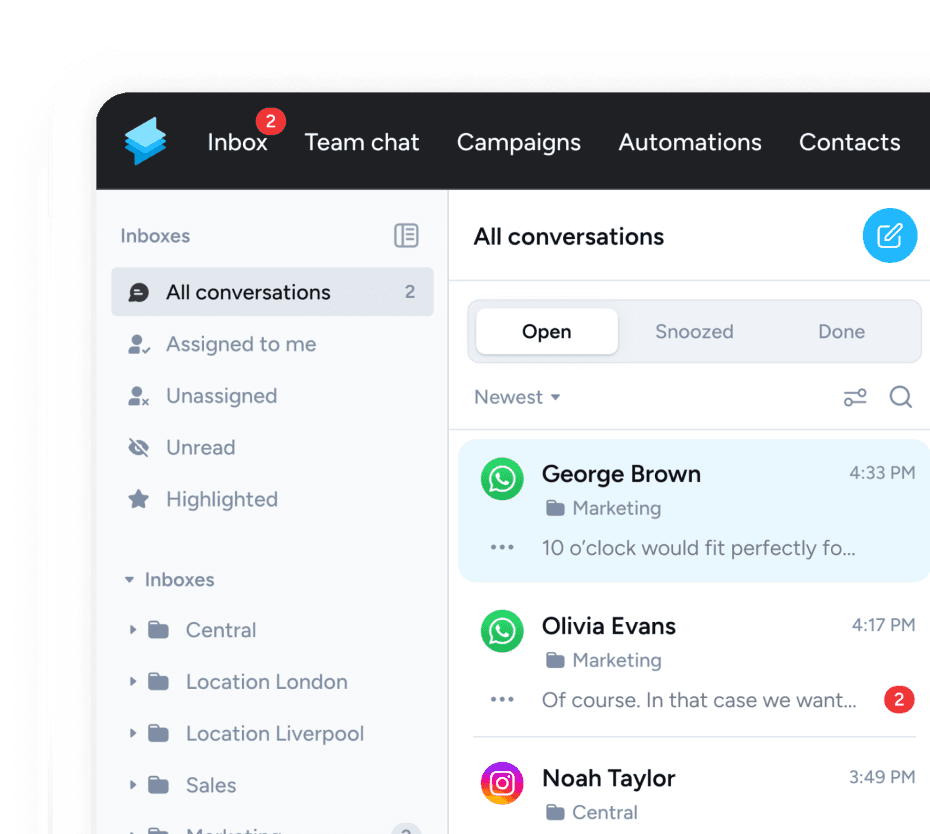Newsletters are considered to be one of the most effective marketing channels. Because your subscribers are usually either existing customers you're trying to retain or prospects who are already interested in your products or services, newsletters tend to have a lower than average cost of production and an above average return on investment.
However, building a subscriber list is usually hard work and takes time. Typically, customers do not give away their personal information for free. Research in the US has shown that 51% of users expect something free in exchange for their data. That's why you usually get a discount or voucher when you subscribe to an online shop's newsletter.
But what is an obvious incentive for most retailers may not work for everyone. For example, if you are a pharmacy or doctor's surgery, you may not be allowed to offer discounts or vouchers in many countries, while in other industries, such as insurance brokers, a voucher may not be a strong incentive.
We've collected 10 ideas for incentives to help you attract new subscribers and build a strong newsletter list.
- Discounts & vouchers
- Exclusive bundles
- Free gifts or shipping
- Raffles & competitions
- Exclusive appointments
- Exclusive products
- Pre-sales & exclusive events
- Gamification
- Refer a friend
- Giveaway surplus products
Discounts & vouchers
Discounts or vouchers are one of the most popular and effective ways to add subscribers to your list. However, there is a downside. Many people subscribe to newsletters just to get a discount, only to unsubscribe shortly afterwards.
Unless you're restricted from offering discounts, you'll almost never go wrong offering one to new subscribers. Most companies will offer either a fixed amount or a percentage discount, but depending on your business you could also offer a free upgrade or complementary product.
For example, if you own a coffee shop, you could upgrade subscribers to the next larger cup size.
Industries:
- Any industry that is not legally restricted from offering a discount
Pros:
- Very popular and effective
- Easy to implement
Cons:
- High unsubscribe rates (compared to organic subscribers)
- Direct cost per subscription
Exclusive bundels
Bundling can be extremely effective, but most companies don't use it. In a nutshell, it means putting products together in a bundle that is cheaper than buying each part separately. The most famous example is probably the Happy Meal, but you'll find bundles in most industries.
When it comes to building your newsletter list, offering exclusive bundles to subscribers can be an attractive alternative to a normal discount. The advantage of bundling is that it increases your overall order volume and can help you sell products.
The downside is that bundles are not as attractive to a wide audience as a discount that can be applied to a preferred product.
Bundles tend to work best when they include complementary products. But in many industries, offering a discount when customers buy multiple products can also be very effective. For example, insurance companies will often offer a discount to customers who take out three or more policies with them, as customers are less likely to shop around for the best deal on each individual policy.
Industries:
- Any industry or business that offers complementary products that can be bundled.
Pros
- Increased order volume
- Easy to implement (e.g. via a voucher for subscribers)
Cons
- Less attractive to a wide audience than a normal discount or voucher
Free gifts or shipping
Who doesn't like free stuff? So it's no surprise that giveaways in exchange for a newsletter subscription usually work well. Of course, you can't give away products or services that are worth more than you make from a new customer.
But often a free upgrade, free shipping or a complementary product is more valuable to a customer than a discount. For example, you may find that many of your customers abandon their shopping carts or are discouraged from making a first-time purchase because there is a minimum order value for free shipping. Offering free shipping to subscribers, or at least on their first order, could add much more value and generate better returns than a discount.
The same applies to products, especially if the perceived value is higher than a potential discount. For example, if there is limited access, perhaps because the giveaway product can't be bought, but is only given to new subscribers.
Industries:
- Any industry
Pros
- Can be hard for competitors to copy
- Can significantly increase perceived value (e.g. if it's a complementary product to a purchased item or service)
Cons
- Risk of high unsubscribe rates once customers have received the giveaway
- Can be difficult to find the right giveaway
Raffles & competitions
Giving away something in a competition or challenge, such as a quiz, can give your subscriber list a massive boost. Because you don't have to 'pay' for each subscriber, as you would with a discount, you can spend more on the giveaway.
However, you will also be forced to do so. As subscribers have no certainty that they will receive anything in return for their data, the potential return has to outweigh the 'risk'.
A major disadvantage is that the quality of subscribers is likely to be lower than with other tactics. Firstly, they may not be as interested in your product or service at the moment as someone who signs up for a free shipping discount. Secondly, many people sign up to win something and then unsubscribe or use fake contact details.
On the other hand, if you're collecting subscribers for a WhatsApp newsletter, you're likely to get higher quality data. Unlike email, most people don't have a burner phone number they don't use.
Industries:
- Any industry
Pros
- Can be used in any industry or business
- You can add conditions, e.g. more chances to invite friends
Cons
- Risk of high unsubscribe rates or poor data quality
- Can be expensive, especially in the short term
Exclusive appointments
Depending on your industry, offering subscribers exclusive appointments or preferred waiting lists can be much more valuable than, say, a discount. Most services will have certain days or times of high demand, such as after work or Valentine's Day, but will naturally have a limited number of appointments, spaces or rooms.
Some, like many tattoo studios, may even be fully booked for weeks or months at a time.
If this is the case for your business, you may want to consider offering these appointments or preferred access as an incentive for subscribing to your newsletter. Either by reserving dates just for them, or by letting them know first when bookings are available.
Industries:
- Service industries such as hairdressers, tattoo parlours or doctors
- Hospitality or experience-based industries such as escape rooms or go-karting
Pros
- High perceived value to customers
- Low unsubscribe rates due to constant value added
Cons
- Only applicable in some industries
- Some risk of upsetting other customers
Exclusive products
Just as most services have specific, high-demand dates or times, many stores offer products that often sell out or are initially produced in limited quantities.
In the fashion industry, limited edition "drops" have created a whole industry of their own.
If you're selling products that fall into this category, you can also use this to build your newsletter list by sending subscribers news first or adding them to waiting lists.
Industries:
- Retail
Pros
- High perceived value to customers
- Low unsubscribe rates due to constant value added
Cons
- Only applicable in some industries
Pre-sales & exclusive events
Marketing like Amazon? It doesn't usually make sense for most businesses to copy big companies, but that doesn't mean you can't try some of their ideas. For example, Amazon has been offering early access and exclusive deals to its Prime customers for years, even creating exclusive shopping events just for them.
Take a leaf out of their book and try opening your doors exclusively to your subscribers or followers for a day or two when you have a sale. Or make it an exclusive event with a limited guest list that you send out exclusively to them.
Even if you're not in retail, you probably have something to give to loyal customers and subscribers. For example, if you're a beauty salon, offer a beauty workshop with tips, or if you're a car dealer, offer a test drive in a special car.
Industries:
- Retail & Services
Pros
- High perceived value to the customer
- Low unsubscribe rates due to constant value added
Cons
- Only relevant for some industries
- May require extended or reduced opening hours for the events
Gamification
Gamification can be a great strategy to get people engaged and interacting with a brand, making them more likely to build a relationship with a business.
Because of the interactive nature of Messenger, WhatsApp Newsletter allows you to create small games and quizzes right in Messenger. A popular example is to ask users to guess how many, say, cookies are in a jar and allow them to guess once a day.
This can be a great way to get people to subscribe to your newsletter, especially when combined with competitions and giveaways.
Industries
- Any industry
Pros
- Highly engaging
- Easy to combine with other incentives
Cons
- Relatively hard to implement
- Usually requires additional promotion on other channels
- Requires constant updates to stay relevant
Refer a friend
Simple, but very effective for most businesses. "Refer-a-friend schemes are very popular, especially if you have a subscription-based business. Businesses can do the same with newsletters, or even create tiers where the referral 'bonus' is based on the value or number of conversions.
For example, you could offer a discount for every new customer, but only for five new subscribers.
However, subscribing to a newsletter has a much lower threshold than paying for a product or service and is not dependent on timing. They may want to receive regular information or content even if they're not in the process of making a purchase.
Industries
- Any industry
Pros
- Incentivises existing customers
- Encourages customers to become ambassadors
Cons
- Costs can add up quickly
- Risk of customers or partners competing with your other marketing campaigns
Giveaway surplus products
Consumers in most countries are becoming increasingly environmentally conscious. This is particularly relevant if you sell products that have an expiration date, especially if they are freshly prepared.
If you're using WhatsApp or other messengers for your marketing, you can kill two birds with one stone by offering surplus products to subscribers at a discounted price.
This way, you can offer customers a deal and still make some money without having to throw away otherwise good products.
If you're using an application like Too Good To Go and your deals tend to sell out quickly, you can use the newsletter to let your subscribers know when you're adding new deals.
Industries
- Mostly hospitality
- Retail (slightly damaged products)
Pros
- Reduces costs
- Highly attractive to environmentally conscious customers
Cons
- Hard to automate (as surplus can change each time)
- Mostly relevant to local businesses
- Only a few subscribers will benefit
Conclusion - Get creative with incentives.
Subscription incentives, like newsletters, don't have to be boring. And even if you don't run a business that can easily offer discounts or vouchers, there are still many creative ways to help you build a strong list of subscribers.
Many of these ideas can or should be easily combined. Research has shown that 43% of users like flexibility in a loyalty program, meaning they prefer to pick and choose their benefits.

